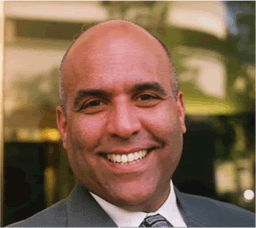“There’s a new way to change the world…”
The new way is called the lean startup—and it’s not just for new companies. It’s been revolutionizing businesses of all sizes for years. This blog (and the book Lean Startups for Social Change) is about showing how the lean startup can have the same transformative impact in non-profits, government, faith institutions and across the social sector.
Traditionally, entrepreneurs develop a detailed plan, find money to fund it, and then pursue it to its conclusion. But conditions can change drastically at any point—you can end up locked into a process based on now-obsolete assumptions. The lean startup is all about agility and flexibility. Its mantra is “build, measure, learn”: create small experimental initiatives, get real-world feedback on them quickly, and use that data to identify what works and discard what doesn’t. And then test some more.
Lean Startups for Social Change explains exactly how nonprofits and advocacy organizations can adapt lean startup concepts to their unique circumstances. The book and this blog offer dozens of real-world examples: an established homelessness group whose data analysis showed that reducing a single overlooked metric could get many more people off the street; a technology-based literacy startup that used lean techniques to reach 2 million children in two years, when a more traditional program took fifteen; and many others. The standard approach wastes time and money—the lean startup promises to help social sector organizations vastly increase the good they do.
 It took Michel about twenty-five years of work on environmental and social justice to realize that his real specialty was startups. His career has moved in seven-year increments through government, academia, advocacy, and, most recently, business. The intense focus on innovation and launching startups in this last phase brought him to the realization that, in each of his prior incarnations, his work had also been about bringing new things to light in the world.
It took Michel about twenty-five years of work on environmental and social justice to realize that his real specialty was startups. His career has moved in seven-year increments through government, academia, advocacy, and, most recently, business. The intense focus on innovation and launching startups in this last phase brought him to the realization that, in each of his prior incarnations, his work had also been about bringing new things to light in the world.
He was raised in a community of innovators—community activists who reformed Democratic machine politics in New York City and helped make Shirley Chisholm the first black person to run for president of the United States. As a graduate student at Berkeley, Michel wrote the first doctoral dissertation in the field of environmental justice and co-taught the first class at any university in the field as well.
He returned to political work after graduate school, working for Rep. John Dingell’s Energy and Commerce Committee, and later moved back to New York to serve as Mayor Dinkins’s Director of Environmental Quality. As assistant commissioner to the city’s $2 billion a year water and environmental agency, he started demand-side and watershed management for the city’s water system, and these programs cumulatively reduced demand in the city by almost 25 percent in the following decade.
He was invited by Columbia University’s School of International and Public Affairs to be founding director for its environmental policy program. During this period he also cofounded a number of local and regional environmental justice organizations and water and oceans organizations, as well as the country’s first multistate community-based research consortium at Rutgers University in New Jersey.
Michel moved back to Berkeley in 2001 to teach and to lead Redefining Progress, at the time the country’s only national sustainability policy institute. He and the team there pioneered new ways of thinking about climate policy primarily as economic and employment policy. Under a federal government that was committed to inaction on climate change, Redefining Progress helped California and nine northeastern states adopt legislation that today raises over $3 billion a year in revenue from fees on carbon emissions.
Michel focused next on addressing the new imperative for sustainability in the business world. He started as a software entrepreneur in 2007, launching a social venture called Cooler that aims to activate consumers to make better choices. He subsequently joined a Kleiner-Perkins portfolio company, Hara, that became the leading provider of enterprise-scale environmental management software and put over a million buildings worth of energy data in the cloud as a cofounder of BuildingEnergy.com.
Most recently, Michel worked as a Senior Fellow with the David and Lucile Packard Foundation to help develop new approaches to innovation in climate philanthropy. He designed experiments in Turkey, Australia, and Indonesia and helped to develop a prize platform specific to climate challenges.
Michel is the curator of the Lean Change Blog as well as the author of Lean Startups for Social Change.